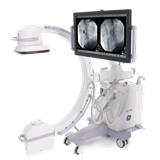The new model, known as Computer Health Assessment by Telephone (CHAT), aims to reduce the need for patients waiting for surgery to travel to outpatient clinics, while also providing a more consistent level of care.
"With CHAT, surgery patients will have an initial 20-minute consultation over the phone with a non-clinical but trained healthcare worker," said the leader of the project, Professor Guy Ludbrook, Head of Acute Care Medicine at the University of Adelaide and a Specialist Anaesthetist at the Royal Adelaide Hospital.
"Information provided by the patient is derived using a clinically proven questionnaire and entered into a computer database, which helps to determine the comprehensive needs of the patient, including any risks to their health. A detailed analysis is then sent to anaesthetists, nurses, doctors and pharmacists for their action.
"This means that each patient is treated based on their specific needs, with a checklist approach which assists clinicians ensure their care is precise and consistent.
The CHAT pre-screening model is based on a pilot study by Professor Ludbrook and colleagues at the University of Adelaide, Royal Adelaide Hospital, Royal Perth Hospital and the University of Western Australia.
They studied consultations with more than 500 patients scheduled for elective surgery and found that the quality of assessment provided by a non-clinician telephone interview was comparable to a face-to-face interview by trained anaesthetists, and often more comprehensive.
The model's home-based approach should work well for both patients and practitioners alike, saving valuable time at a critical point in the patient care process, said Sheree Hardcastle, General Manager at Unique Care, a specialist supplier of hospital and aged care equipment.
"If CHAT can provide a consultation service to patients in the comfort of their own home that is equal to that provided by the current face-to-face model, then this could be a very exciting step towards a more efficient, streamlined outpatient system."
Significant savings for the health budget
Hardcastle said there could also be flow-on effects from the model, if it were able to inevitably reduce hospital waiting times.
"If CHAT can free up the waiting room, this could reflect in a health care budget that may have the ability to invest more funds into the procurement of much needed healthcare equipment to support patient care and recovery.
"CHAT could be a very effective solution for the patients and health professionals of many health care facilities in the future."
Professor Ludbrook said: "In the future, around 50-90 per cent of patients won't need to spend time traveling to an outpatient clinic and waiting for consultation if they really don't need to.
"Those patients who have complex needs will of course require a face-to-face assessment. However, knowledge of their circumstances and medical conditions before admission allows us to develop options, such as patients receiving prescriptions at home, having blood tests in their local neighbourhood, and even referral to a hospital that has particular expertise for their condition.
The new trial has begun at the Royal Adelaide Hospital with support from the Central Adelaide Local Health Service.













-160x160-state_article-rel-cat.png)


-160x160-state_article-rel-cat.png)




